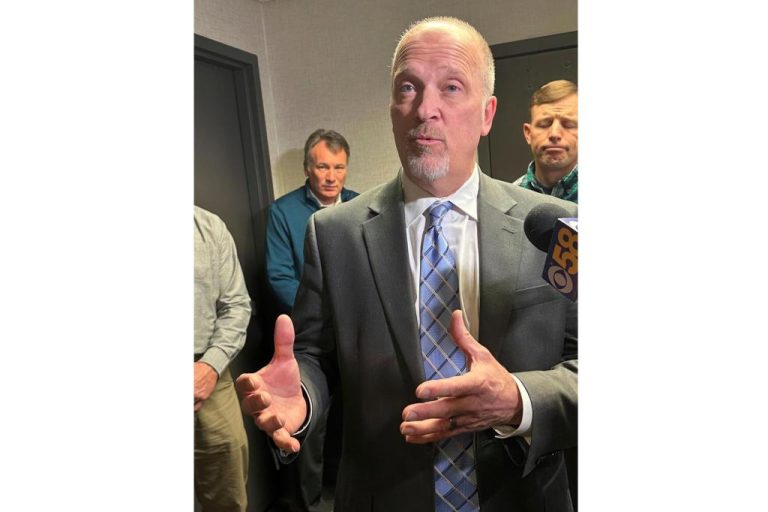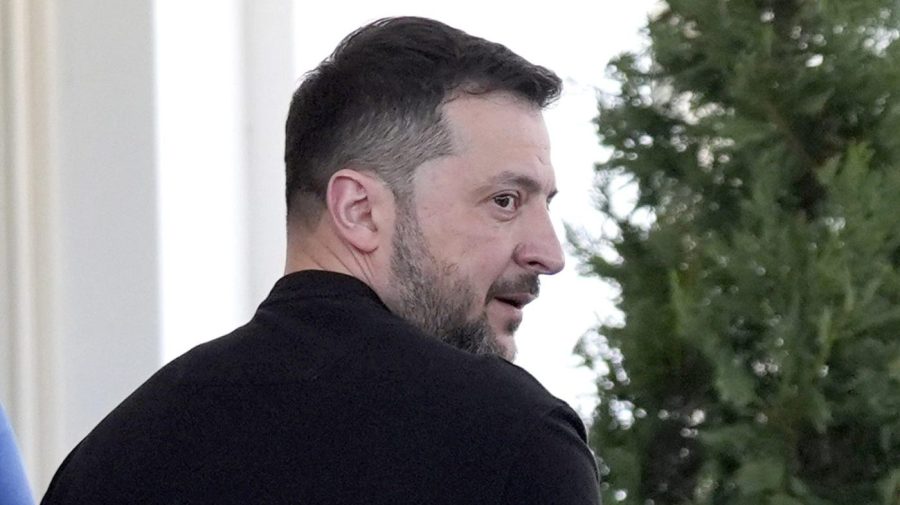
Daniel Smiechowski is challenging Mayor Todd Gloria for re-election, after previously running in 2018 and 2022 to represent City Council District 2.
To help inform voters, the San Diego Union-Tribune asked all the candidates a series of the same questions about their priorities, positions and campaigns. Their emailed answers have been lightly edited for clarity.
Why are you running, and what makes you the best candidate?
I am running to change the direction of city government from one owned by the developers to one beholden to the citizens of San Diego. I am motivated by the idea that the noblest motive is to serve. It is my desire to bring new solutions to recurring problems. When I am elected, I will implement long-term solutions that will allow me to serve as mayor and retire from public service knowing that my service made a difference.
I am the best candidate because I have spent my life advocating for the citizens of San Diego; I am not a career politician. I have no desire to continue in public office after I have been elected mayor. For those reasons I will make decisions that will not further my political career but will be what I consider to be in the best interests of my fellow citizens.
What are the top 3 issues facing the city?
1. Reducing the cost of housing in San Diego.
2. Solving the homeless problem.
3. Reducing the expense of running our government.
What are the first 3 things you would do in office if elected?
The highest priority in my administration is to stop all projects that involve the sale of city-owned land. I would lease city land, using the Port District model of stewardship in administering the use of our land. All rezones would be approved with the developer selling the rezoned land to the city.
I would institute a 10% pay cut of all salaries in city government that exceed $150,000. I would put into effect a hiring freeze on all positions where the base salary is $150,000 or more. I would eliminate and consolidate departments that have high overhead. I would use the savings to hire more employees who provide service, not supervision.
All new hires in the city government would be enrolled in Social Security. I would liquidate the current pension program by not covering any more employees. Eventually the city will pay off the multibillion-dollar debt that keeps growing.
Do you support a 1-cent general city sales tax increase, and/or a half-cent county sales tax increase that would fund transportation? Why or why not?
The way to control government spending is to control expenses not raise taxes. If the city had adopted a policy of leasing their land when the Port District started it, the city would be just like the Port District relying only on lease payments not taxes.
Fiscal responsibility starts with a mayor who will cut salaries and pensions. San Diego is required by law to balance its budget. Instead of selling our land to balance the budget, lets reduce the cost of government. Raising taxes only increases expenses by encouraging new costs.
What should the city do to combat its housing crisis?
The price of housing doubles every 10 years because the value of the land increases.
The solution to both problems is to stop selling city-owned land and lease it like the Port District.
I will build a low-income high-rise apartment complex on leased city-owned land. I will require that the units have four private bedrooms, two full baths and a kitchen. The lease payments will be predicated on a percentage of the gross rents over 60 years. The winning bid will have purchased the right to use the land at less than 25% of the cost of a comparable project. At the end of the 60 years the land comes back to San Diego and we can do it again.
This will provide a comparable sale for a leasehold estate. It will demonstrate the feasibility of building low-income housing that pays for itself without using government subsidies.
How should public safety and civil liberties be balanced when it comes to homelessness enforcement, behavioral health policy and police surveillance?
Public safety and civil liberties cannot be thought of as a scale in and out of balance. This is an illusion created to confuse the voters as to the core problems we face in San Diego.
There is no comparison when addressing unfair laws that criminalize poverty and poor healthy policies that fail to address the core issue of healthcare.
Police surveillance has nothing to do with poor health policies and the homeless.
The solution to these problems is leadership that has a desire to address each of these issues as separate problems with unique solutions.
Recent flooding has brought new attention to failures of city infrastructure, and how the effects of climate change can disproportionately impact poorer neighborhoods and communities of color. How should the city combat this?
A short-term solution is to educate and involve the citizens of San Diego to take responsibility for their own streets and drains. A neighborhood watch program that cleans the sewer grates of leaves and debris before the streets floods reduces the load on our city employees.
The real problem is poorer neighborhoods do not have large campaign donors who can influence politicians when they prioritize spending on infrastructure. The older pump stations are located in the poorer neighborhoods. Giving priority to their replacement instead of the more affluent areas of town would be the tide that raises all boats equally.
San Diego faces a big budget crunch, along with a nearly $5 billion infrastructure funding shortfall. Where would you propose cutting, where should more revenue be sought, and what else should the city do?
The major cost to our budget is personnel salaries and benefits. Reduce the salaries of the mayor and all elected city officials and cut their staff. Institute a hiring freeze on all positions that have a base salary of $150,000 or more.
Pensions are a cost that will bankrupt the city unless we stop it now. It is a privilege not a career to work for the government in a leadership capacity. Put all new hired employees on Social Security. Let those positions that pay more than allowed for coverage by Social Security take care of their own retirement.







